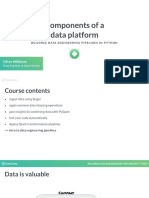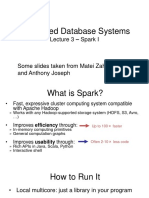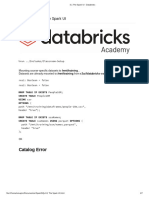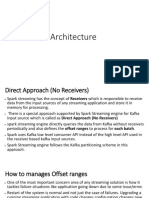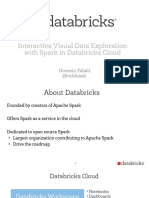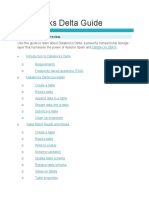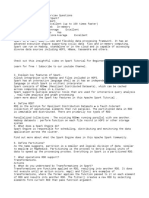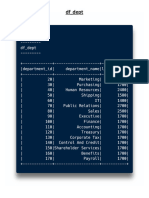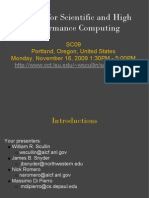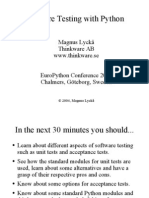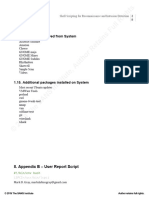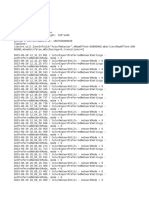0% found this document useful (0 votes)
485 views49 pagesPython Data Pipelines Guide
This document discusses building data pipelines in Python. It covers extracting, transforming, and loading data; breaking pipelines into modular components; using workflow managers like Luigi and Airflow for orchestration; implementing testing, logging, and static type checking; and applying engineering principles to research and development work. Overall it argues that treating data pipelines as software engineering projects can help make them more robust, reusable, and maintainable.
Uploaded by
bender benderCopyright
© © All Rights Reserved
We take content rights seriously. If you suspect this is your content, claim it here.
Available Formats
Download as PDF, TXT or read online on Scribd
0% found this document useful (0 votes)
485 views49 pagesPython Data Pipelines Guide
This document discusses building data pipelines in Python. It covers extracting, transforming, and loading data; breaking pipelines into modular components; using workflow managers like Luigi and Airflow for orchestration; implementing testing, logging, and static type checking; and applying engineering principles to research and development work. Overall it argues that treating data pipelines as software engineering projects can help make them more robust, reusable, and maintainable.
Uploaded by
bender benderCopyright
© © All Rights Reserved
We take content rights seriously. If you suspect this is your content, claim it here.
Available Formats
Download as PDF, TXT or read online on Scribd
/ 49



